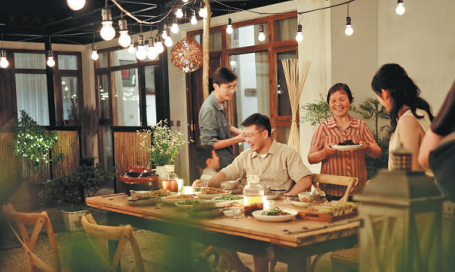Airbnb names its favorite homes away from home


Over 90 percent are "slashers", meaning they have jobs besides operating their listings. About one in five work in innovation-related industries, which is a higher percentage than in other countries.
About 87 percent introduce local culture to guests. And 95 percent offer their guests environmentally friendly services, such as providing large bottles of shampoo and smart cards for public transport.
The top five source markets for overseas guests are the United States, the United Kingdom, Australia, France and Germany.
Chinese hosts cite their main motivations as earning extra income, making use of vacant accommodation and enjoyment.
Wei Xiaoxiang, who won the 2019 Belo Award for best listing design, is the host of a century-old two-story building in a village inhabited by the Bai ethnic group in Dali, Yunnan province.
"The biggest challenge is to find suitable old buildings because it's rare to find many that have been well preserved over the years," he says.
"The space is decorated with local elements, such as Bai-style tie-dye, to showcase the area's intangible cultural heritage. Many guests are interested in learning tie-dyeing from inheritors in the village."
His team spent 10 months redesigning and renovating the house before it opened to guests in February 2019. They bought old tiles to repair the building, which was constructed out of wood using exquisite traditional mortise-and-tenon work to retain its quaint charm.
"It's the human kindness that makes home-sharing listings different from hotels," he says.
"It's also what I try my best to present to guests."
























